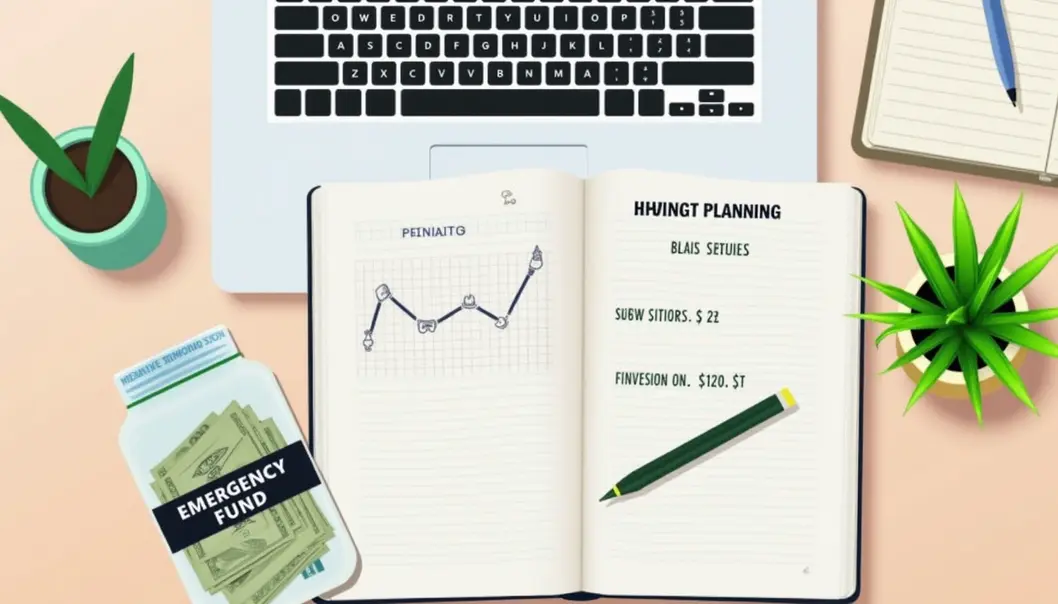In today’s gig economy, financial literacy is crucial for freelancers who must navigate unique financial challenges. Understanding key money concepts like saving, budgeting, investing, and managing risks enhances financial security and growth. Building an emergency fund and tracking expenses empowers freelancers to make informed choices, while smart investment strategies can pave the way for future wealth. As we delve into these vital topics, you’ll discover how to create solid financial foundations that support your freelance career and set you up for long-term success. Each section will provide actionable insights tailored to freelancers, ensuring you are equipped to manage the ebbs and flows of income while planning for your financial future effectively.
Building Financial Security: The Crucial Role of Saving and Emergency Funds
In the world of personal finance, understanding the importance of saving money and establishing an emergency fund cannot be overstated. These foundational principles are keys to achieving greater financial stability and resilience against unexpected life events. Having a financial cushion allows individuals to tackle unforeseen expenses—such as medical bills, car repairs, or even job loss—without resorting to high-interest debt options like credit cards or loans.
An emergency fund serves as a safety net, ideally containing three to six months’ worth of essential living expenses. This amount varies depending on individual circumstances—some may feel comfortable with three months, while others may want a bit more for security. What matters most is finding a starting point that feels achievable, such as aiming for an initial goal of $500. This approach allows individuals to gradually build their fund over time while deterring the temptation to accumulate debt during stressful financial moments.
Setting aside money for savings can be a daunting task, but automating transfers to a dedicated savings account is a strategic method of fostering this habit. By setting up automatic withdrawals from checking accounts to your chosen savings mechanisms, you essentially pay yourself first. This method takes the task out of your hands and seamlessly integrates saving into your routine, ultimately leading to consistent growth in your emergency fund.
When it comes to choosing the right account for your emergency fund, liquidity and interest rates play crucial roles. High-yield savings accounts or money market funds typically provide a safe environment for storing this cash while ensuring it earns some interest. Maintaining easy access to these funds means you’re always prepared to handle unexpected expenses without fear of penalties or withdrawal restrictions, thus preserving the fund’s purpose.
Building an emergency fund is not just about protecting against the unexpected; it can significantly reduce the stress and anxiety associated with financial uncertainty. During crises, having money set aside can shift the mindset from worry to empowerment, enabling individuals to make thoughtful decisions rather than hasty ones driven by desperation.
Once an emergency fund is established, it serves as a building block for a more profound understanding of personal finance. As you monitor your savings’ growth, you become more cognizant of your spending habits, prompting further exploration into budgeting. Tracking expenditures allows individuals to categorize fixed costs—like housing and loans—versus variable costs—such as groceries and entertainment. Recognizing patterns in spending and identifying areas where cuts can be made fosters a culture of savings, leading to additional financial security.
In pursuing financial literacy, there is a direct correlation between saving habits and long-term investment outcomes. Those who prioritize saving often explore investment options sooner because they have mitigated the risks posed by unexpected expenses. Whether through stocks, bonds, or mutual funds, understanding one’s financial landscape is essential in making informed investment decisions.
Investing, while inherently risky, becomes a viable option for those with a solid emergency fund. Having this financial buffer can discourage impulsive decisions out of fear of losing money in the markets. Instead, investors can make decisions based on their long-term goals and financial competency. Starting early in investing allows the power of compound interest to work in your favor, enhancing personal wealth over the years.
The commitment to regular savings does not merely build an emergency safety net; it reinforces critical financial habits. For instance, setting aside 10-15% of your income annually, potentially through retirement accounts like a Roth IRA, equips individuals with more significant wealth accumulation strategies. Such arrangements grow tax-free and can serve as powerful retirement planning tools, supporting a comfortable, stable financial future.
Moreover, as individuals dive deeper into the complex world of finance, concepts of risk management become pivotal. Understanding the risk associated with different investment types—from low-risk money market funds to higher-risk stocks—can guide your investment decisions. This awareness fosters a holistic understanding of personal finance and reinforces the need for an emergency savings fund.
Ultimately, the process of saving money and building an emergency fund is more than just accumulating a financial cushion; it’s about developing a comprehensive approach to achieving financial health. It allows individuals to navigate both expected and unexpected life changes, fostering resilience amid financial turbulence. In doing so, people not only reduce their reliance on debt but also create opportunities for future investments in their lives.
In summary, establishing an emergency fund is a fundamental aspect of sound personal finance. It empowers individuals to face life’s uncertainties with confidence and peace of mind. By adopting a disciplined approach to saving, individuals cultivate a mindset that paves the way toward financial literacy, informed investment, and prudent money management.
For more insights on budgeting effectively and making the most of your financial resources, consider exploring Budgeting 101: How to Track and Cut Expenses. This practical guide will help you identify areas to improve your savings even further, building towards a solid financial foundation.
Final thoughts
Understanding basic financial concepts is vital for freelancers aiming for stability and growth. By prioritizing savings, budgeting, and prudent investments, you can lay the groundwork for a secure financial future amid unpredictable income streams.
Join our newsletter to get the latest on financial literacy.
Learn more: https://savemawallet.com
About us
Try our budgeting tools to streamline your financial management and enhance your saving strategies.


Leave a Reply
You must be logged in to post a comment.